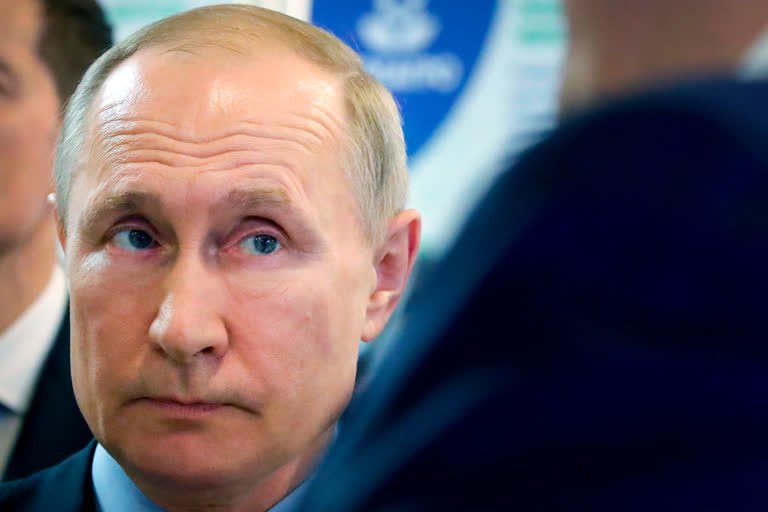Moscow: Russian President Vladimir Putin on Tuesday said that a nationwide vote on constitutional changes he proposed wouldn't be used to extend his current term in office, but remained tight-lipped about his future political plans.
Kremlin critics have seen Putin's amendments as part of his efforts to stay at the helm after his current presidential term expires in 2024. The proposed changes, however, don't make it clear exactly how he could do that.
Asked during a meeting with students and teachers if the vote could be used to directly extend his term in office, Putin said it's not what he wants.
"I didn't propose that to extend my authority," Putin said. The election of the head of state must be held on a competitive basis.
Read also: Russian lawmakers approve Mishustin as new PM
Observers have speculated that once his term expires Putin could use the amendments to continue calling the shots as head of the State Council or prime minister.
The former position, however, is yet to be defined and the latter is clearly subordinate to the presidency, making it unlikely that Putin would want it for himself.
It has remained unclear why the Russian leader is rushing through constitutional changes four years before the end of his term.
Putin, a 67-year-old former KGB officer, who has led Russia for more than 20 years the longest since Soviet leader Joseph Stalin.
Putin prefers to keep his plans secret until the final moment. He has argued that the changes in the constitution he proposed in a state-of-the-nation speech on January 15 are intended to boost the powers of parliament and strengthen democracy. But the proposals also maintain and even strengthen presidential powers something Putin described as a must for Russia.
Read also: Russian military begin patrols on north Syrian border
The Kremlin-controlled lower house quickly approved Putin's constitutional bill in the first of three required readings last month, and a second reading is set to be held later this month.
Lawmakers and a working group created by Putin have already come up with a variety of proposals in addition to what the original draft outlines.
Once lawmakers complete work on the constitutional amendments, they will be put to the popular vote. It's still unclear how it will be organised.
Putin on Tuesday said that he wants a nationwide vote as the highest form of democracy, adding that it will make people feel engaged, feel themselves as co-authors of the document.
He noted that he hopes that the work on the constitutional changes could be completed in just over three months.
With inputs from PTI



